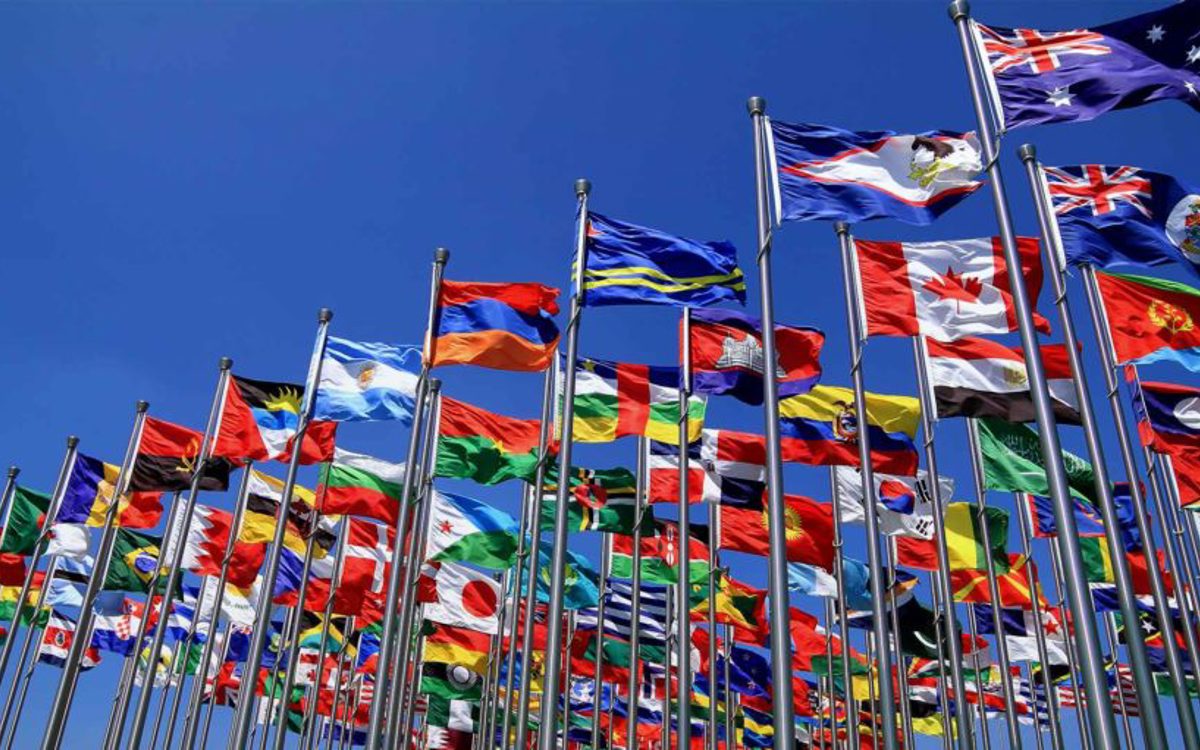Supporting equitable partnerships between our global network of members is at the heart of our mission and is fundamental to our organisational strategy.

In a world where there are entrenched inequalities across so many aspects of life, we believe that it is essential for universities to be at the forefront of action and research that challenges and overcomes these issues to build a more equal society for all.
Supporting equitable partnerships between our global network of members is at the heart of our mission and is fundamental to our organisational strategy, The Road to 2030.
A global network for skills and knowledge exchange
To move the world forward, we must acknowledge and share the wealth of expertise that exists right across the globe – not just in the global North – and the extensive and diverse ways of knowing and thinking.
All universities have something to learn from each other – from indigenous ecological knowledge to cutting-edge tech. The ACU promotes knowledge sharing and knowledge democracy through networks including:
- Commonwealth Climate Resilience Network
- Commonwealth Peace and Reconciliation Network
- Higher Education and the SDGs Network
- Supporting Research community
- HR in HE Community.
These networks and communities provide platforms for staff and students - united by their interest and skills in specific areas - to share knowledge and ideas, contribute to policy dialogues, and build partnerships.
Good practice in equitable partnerships
Through, sharing knowledge and creating locally-based solutions, the ACU’s capacity strengthening programmes support universities to strengthen the skills and knowledge needed to ensure thriving teaching, learning, and research environments. This creates a foundation for collaboration that is both fair and sustainable.
For example, through the Partnership for Enhanced and Blended Learning (PEBL), the ACU works with universities to scale up blended learning and co-create locally-relevant online teaching modules, supported by the online learning expertise of global partners.
For tools, guidance and resources from global partners focused on ensuring equity in international research partnerships, visit the UKCDR & ESSENCE equitable partnerships resource hub.
Broadening minds and forging connections
Studying abroad enables the exchange of knowledge, ideas, and cultures. This enhanced understanding and respect underpins the basis for equitable partnerships. That's why international educational opportunities, such as the scholarships run by the ACU, are vital to create lasting personal, professional and diplomatic bonds between individuals and nations.
One example is Andrew Harvey, a Canadian who received a Queen Elizabeth Commonwealth Scholarship to study at the University of Dar es Salaam in Tanzania, where he began a life’s work to document the indigenous languages of the Tanzanian Rift Valley. His work with the Gorwáa community led to the creation of the first-ever dictionary of the language.
The Commonwealth Futures series brings together cohorts of young people with a focus on creating global citizens and giving them a voice in shaping their future.
The Commonwealth Climate Research Cohort works towards solutions for climate-vulnerable regions. This programme, run in partnership with the British Council, supports a cohort of rising-star researchers to develop their skills in research leadership, international collaboration, and translating research into action ahead of COP26.
A call to action
In this joint communique, the ACU, The African Research Universities Alliance (ARUA) and United Kingdom Research and Innovation (UKRI) set out a vision for strengthening UK-African research partnerships, by building individual and institutional capacity, creating a supportive environment for researchers to thrive and grow, coordinating and aligning funding programmes and maximising research impact by enhancing networks and partnerships beyond academia.
Hear from the experts
Kirsty Kaiser, Implementation Manager at the Research Fairness Initiative, which is based in South Africa, and Professor Imran Rahman, Dean of the School of Business at the University of Liberal Arts Bangladesh, joined us on 'The Internationalist' podcast to discuss whether international collaboration has a fairer future.
